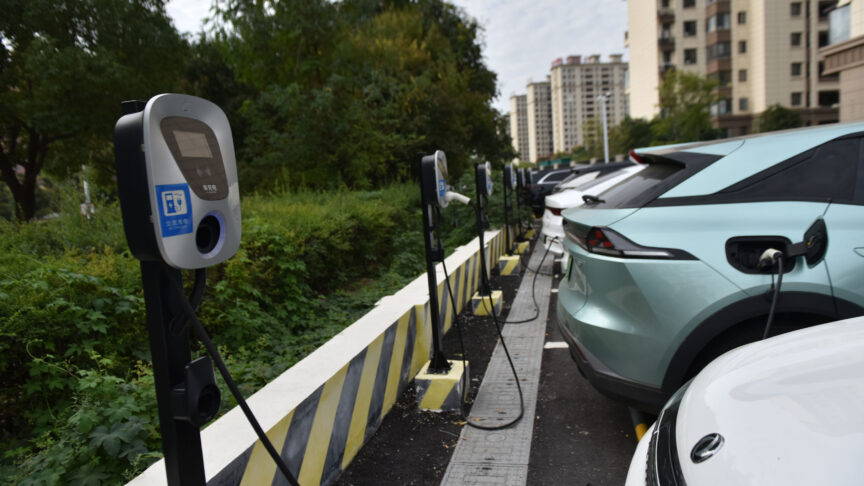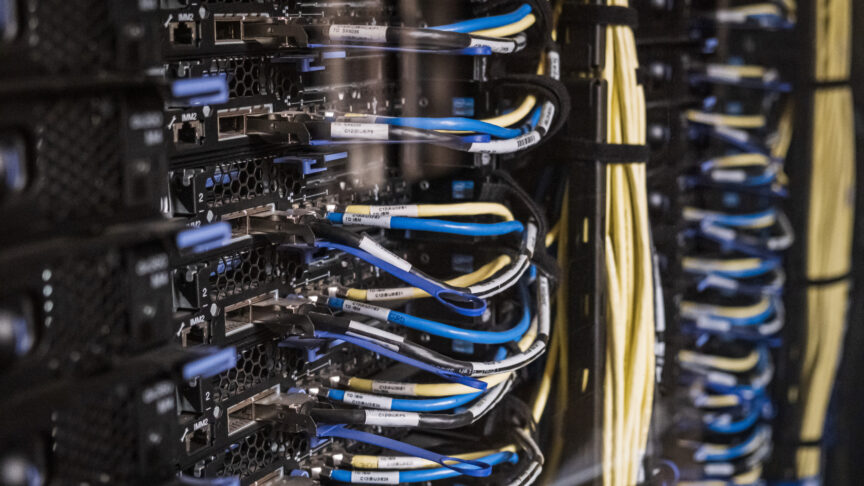Own coal: Why Europe could lose its green transition
European leaders’ need to sanction Russia is pushing them to develop alternative sources of fuel. They should not lose sight of the role that clean energy could play in this
At the meetings of the G7 and the EU energy council earlier this week, European policymakers grappled with a common challenge: how to protect European energy security while ending all dependence on Russia. Their conclusions mark a sobering change in tone. As recently as May, the REPowerEU plan had set out the European Union’s ambition for a broader definition of energy security – one that had clean energy at its core. But the conclusions of this week’s meetings suggest that there will be a shift away from this ambition and towards knee-jerk measures to secure fossil fuels from non-Russian sources in the near future.
The headline proposal from the G7 meeting was a commitment to explore the possibility of a global cap on the price of Russian oil. This measure would be designed to prevent Russian firms from selling oil to countries that have not imposed sanctions on Russia, thereby hampering the Kremlin’s ability to replenish its war chest in Ukraine. In theory, this is a good proposal. And it capitalises on the public mood in Europe. In a public opinion survey ECFR recently conducted in ten European countries, 70 per cent of respondents supported further sanctions on Russia, with 63 per cent favouring an end to all imports of Russian fossil fuels.
The G7 communiqué reflects Western states’ focus on protecting their short-term energy security through continued reliance on fossil fuels
This feeling may even have grown since the poll took place – due to yet more Russian atrocities in Ukraine, such as the bombing of a shopping centre in Kremenchuk. But, for the price cap to work, many nations outside the EU and the G7 would need to enforce it. And many countries in the global south and elsewhere continue to undercut Western efforts to sanction Russia. One challenge, then, is how to get them on board.
Furthermore, the G7 communiqué reflects Western states’ focus on protecting their short-term energy security through continued reliance on fossil fuels. This was evident in German Chancellor Olaf Scholz’s push to include investment in the gas sector as an “appropriate temporary response” in the G7 communiqué – undoing months of efforts to remove gas from the EU’s taxonomy of clean investments. It is also clear from the fact that Austria, the Czech Republic, Germany, Greece, the Netherlands, and Poland have recently extended the life of their coal-fired power plants.
By contrast, EU leaders appear relatively unconcerned about the need to immediately scale up clean-energy investment and production capacity, in line with the RePowerEU plan. Their shared understanding that this will be fundamental to Europe’s long-term energy security seems to have given way to panic about possible energy shortages in winter.
One might have expected that the pressing issue of how to promote clean energy investment would be a focus of EU energy ministers’ and environment ministers’ meetings. They made some progress in their ambitions for, and commitments to, the climate agenda in other areas. The energy ministers set higher targets for energy efficiency and renewables under the Fit for 55 package, while the environment ministers confirmed that, by 2035, only zero-emissions vehicles would be sold in the EU.
But, to make these targets achievable, EU member states will need to back up their words with the level of funding needed to rapidly develop clean sources of energy. Furthermore, they will need to do this collectively, by creating a next-generation energy union that benefits from economies of scale. They will also need to address the tricky issue of how to finance this – possibly including by borrowing to invest (in line with the model of the covid-19 recovery fund). Finally, they will need to invest in their diplomatic relationships with a range of countries to access the resources and technologies essential to the green transition. So far, member states have steered clear of these challenges.
The fate of the European Green Deal amid heightened geopolitical tension will have implications far beyond Europe. If the EU is true to its word on climate issues, it will show other regions and states that decarbonisation is possible. This would help the union regain some credibility as a leader by example on climate. Given that many countries in the global south are disappointed with the EU’s approach to vaccine nationalism, debt relief, and climate financing – as well as the resonance of the Chinese and Russian narrative that Western sanctions on Russia are behind the growing international food crisis – principled climate leadership could begin this healing process. However, with COP27 fast approaching, the general tone of the EU’s recent statements indicates that it is backsliding towards fossil fuels.
In his address to the G7 summit this week, Ukrainian President Volodymyr Zelensky characterised the coming months as the last opportunity for the West to increase pressure on Russia and help Ukraine win the war before rising energy prices undermine public support for sanctions. It may also be the last chance for the EU to ensure that the European Green Deal survives Russia’s war on Ukraine. This will require European leaders to go beyond rhetoric and recommit to the climate agenda. Moreover, they will need to generate substantial funding for both the rapid development of clean energy sources and the mitigation of the energy transition’s negative socio-economic effects. The cost of failing to focus on this heavy investment would be the long-term insecurity of the planet.
The European Council on Foreign Relations does not take collective positions. ECFR publications only represent the views of their individual authors.



